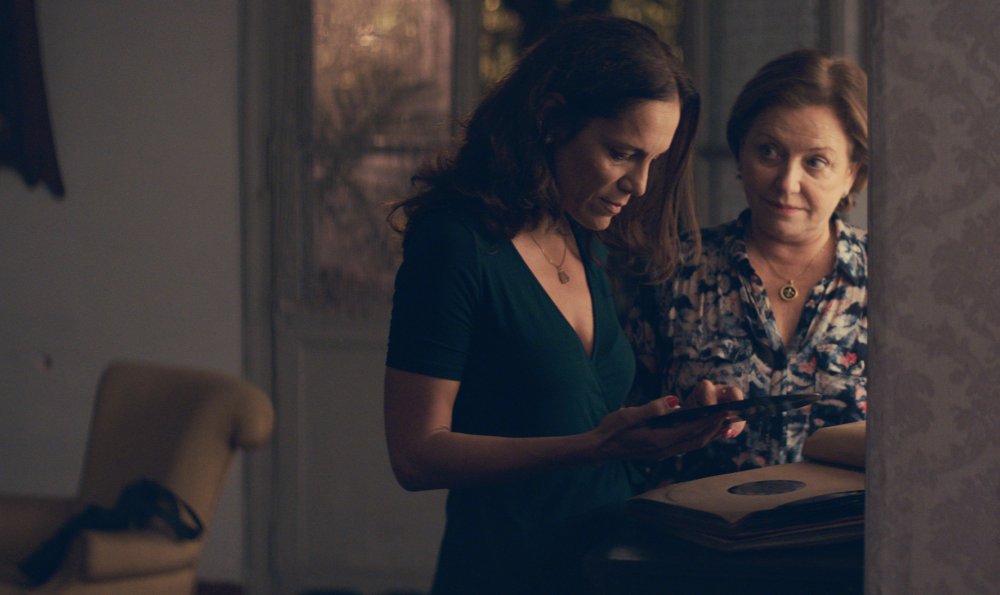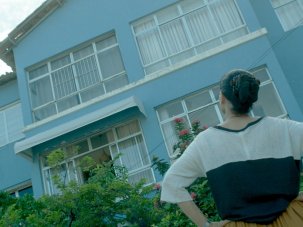In an early scene in Marcelo Martinessi’s accomplished debut feature, the introverted Chela (Ana Brun) pushes away her partner of 30 years, the more gregarious Chiquita (Margarita Irún), claiming that she smells of cigarettes and alcohol. The pair have returned from their friend Carmela’s 50th birthday party and it’s clear that their predicament – Chiquita is facing fraud charges and a prison sentence looms – is now public knowledge. “Don’t be so dramatic,” Chiquita tells Chela. But for Chela, a painter who has existed in Chiquita’s shadow, the future looks uncertain and too dramatic for comfort. She is unwilling to get out of bed, and sits in silence in the dark rooms of their large house in an affluent district of Paraguay’s capital Asunción, snapping at concerned friends and new maid Pati, whom Chiquita instructs in the preparation of the cantankerous Chela’s drinks and pills.
Paraguay/Uruguay/Germany/Brazil/Norway/France/Italy 2018
Certificate 12A; 97m 57s
Director Marcelo Martinessi
Cast
Chela Ana Brun
Chiquita, ‘Chiqui’ Margarita Irún
Angy Ana Ivanova
[2.35:1]
Subtitles
Original Spanish title Las Herederas
UK release date 10 August 2018
Distributor Thunderbird Releasing
thunderbirdreleasing.com/the-heiresses
► Trailer
The dark, largely empty interiors of the imposing house that Chela rattles around in like a ghost are duly contrasted with the busy, colourful patio of the prison where Chiquita is held. The Caribbean green of the yard and the reds and blues of the inmates’ and visitors’ clothes and makeup – as well as the dancing, talking and activity of the crowded space – mark a sharp divergence from the house’s dark rooms and yellowing wallpaper. Her father’s old Mercedes car, which the couple is planning to sell, provides a new space for Chela to engage with the world. Its front window gives her a space for looking out, contrasting with her furtive glances through half-open doors as she spies on those who come to view the household possessions that are up for sale.
As the film progresses, Chela emerges both literally and metaphorically from the shadows. Acerbic neighbour Pituca (María Martins, with the faded glamour of an elderly Bette Davis) provides her with a sense of purpose, asking her to ferry first her and then her bridge-playing coterie of friends across the city. Through Angy (Ana Ivanova), the confident, sensual daughter of one of Pituca’s friends, Chela comes out of her shell: she takes a new pride in her appearance; she shyly tries on Angy’s sunglasses and puffs on her cigarette, like a teenager tentatively exploring something for the first time.

This is very much a woman-centred film. Men are largely peripheral presences – evoked in conversations, they are mainly unreliable and unfaithful. Angy’s on-off partner hovers at the edges of the frame, cropped slightly out of focus. Carmela’s 50th party appears entirely populated by women. Angy’s friends Vero and Cata are divorced.
These women are, however, also part of an elite class that makes very clear assumptions about value and rank. Pituca talks with disdain of the difficulties of securing good maids, while Chela criticises her kindly live-in servant Pati. In a deeply stratified society, Chela finds it hard to part with possessions inherited from her wealthy family. Possessions symbolise status, and without them she feels bereft. Through stillness, the smallest arch of an eyebrow and shift of an eye, Brun brilliantly conveys the disorientation of a woman who has always relied on others to service her needs and whims.
As with Sebastián Lelio’s Gloria (2013) – which also had a middle-aged protagonist – the soundtrack offers a wry commentary on the action. The elegant crooner who sings Demetrio Ortiz and María Teresa Márquez’s Paraguayan classic Mis noches sin ti (My Nights Without You) at Carmela’s birthday party foretells what is to come for the forlorn Chela. Spanish crooner José Luis Perales’s Me llamas (You’re Calling Me), a song about moving on, plays as Chela drives Angy and her mother to hospital for the latter’s medical treatment. And the final credits roll to the melancholy sounds of Maya Belsitzman and Matan Ephrat’s Recuerdos de Ypacarai (Greetings from Ypacarai), a song whose lyrics suggest that Chela’s disappearance may be more lasting than Chiquita may initially suspect.
In the September 2018 issue of Sight & Sound
First sight: Poverty of Riches
The Heiresses director Marcelo Martinessi on his debt to Fassbinder and why simply being able to make a film in Paraguay is a miracle. By Lou Thomas.
-
Sight & Sound: the September 2018 issue

Spike Lee: the BlacKkKlansman interview; the indomitable Joan Crawford; Pawel Pawlikowski’s Cold War; Mark Cousin’s on the drawings and...
-
The Digital Edition and Archive quick link
Log in here to your digital edition and archive subscription, take a look at the packages on offer and buy a subscription.










